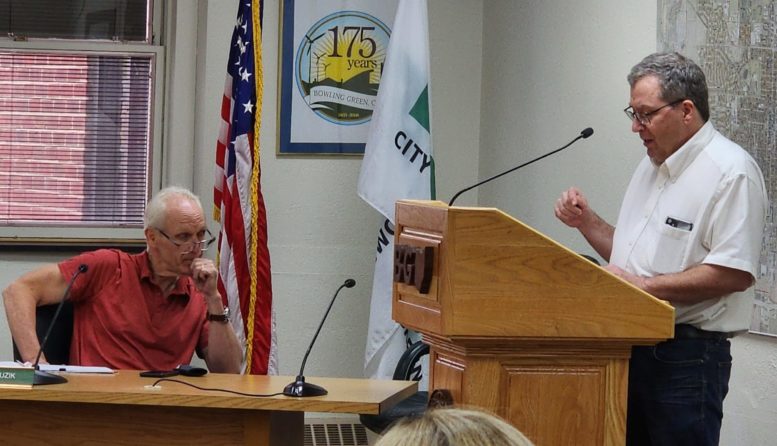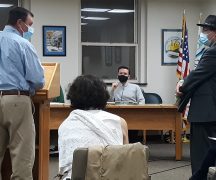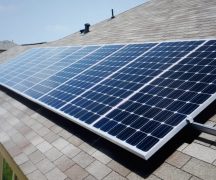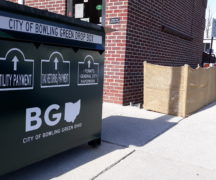By JAN LARSON McLAUGHLIN
BG Independent News
Bowling Green’s Board of Public Utilities threw some shade Monday on a plan to help customers with rooftop solar systems.
City Utilities Director Brian O’Connell recommended that the board use a portion of funds from the EcoSmart Choice Program to pay the monthly facilities charge for people who have invested in rooftop solar energy on their homes.
The board was split 2-2, with Trevor Jessee and Megan Newlove voting in favor of the proposal to help customers with rooftop solar, and Brett Pogan and Rick Zuzik voting against the resolution. Board member Andy Wagner was not present.
The dilemma for the board was deciding if the funding was promoting green energy or subsidizing a small number of rooftop solar users.
Bowling Green electric customers have the ability to support renewable energy efforts by participating in the EcoSmart Choice Program which allows them to pay an additional charge ($0.004/kWh) on their electric bill. There are currently 320 city customers who are signed up for the program.
The funds collected by the city are sent to American Municipal Power Inc. to purchase renewable energy credits (RECs). AMP purchases the RECs at the lowest price possible, which can result in remaining funds that are then returned to the city to use for sustainability efforts.
In 2022, AMP returned $2,113 in funds that were not spent in 2021. For 2023, there is $3,171.91 in unused REC funds from 2022.
The city has used the grant funds to plant city trees, purchase LED lights, or other sustainability efforts.
Zuzik questioned if the residents who signed up for the EcoSmart program would approve of their funding being used to benefit the nine rooftop solar users in the city.
“This is being used to subsidize a small number of people,” he said.
But O’Connell said the funds are “still going to a renewable energy project of some sort.”
Later in the meeting, council member Bill Herald told the utilities board that as one of the 320 residents signed up for the EcoSmart program, he approves of the funds being used for rooftop solar users.
“I have no problem with the allocation,” Herald said. “I think it’s innovative.”
At the beginning of the meeting, Joe DeMare, who invested in solar at his home, repeated his protest about the $4 a month facilities “penalty” charged by the city for his solar system.
O’Connell repeated his insistence that the fee pays for electric infrastructure, staff, and equipment – plus provides power when it’s cloudy, nighttime, or when the panels are covered with a layer of snow.
“All that has a cost,” O’Connell said. “It’s a solar charge, it’s not a penalty.”
In 2022, the board approved a resolution to use the funds to pay the monthly facilities charge for customers who have an interconnection agreement for renewable energy generation.
O’Connell told the board this is an appropriate use of the funds as the intent of the EcoSmart Choice Program is to support renewable energy projects or other sustainability efforts.
But Zuzik objected to the funds going for non-public purposes.
“It’s using money that’s supposed to be used for general benefit being used for nine” households with rooftop solar, he said.
Jessee suggested that the utilities department find a middle ground – a way to help a public green energy project and assist those who have invested in solar. He also pointed out that the extra rooftop solar energy is sold back to Bowling Green for renewable energy credits.
“There is a benefit,” to promoting solar, Jessee said.
Newlove agreed.
“We’re trying to encourage that,” she said. “It’s 100% renewable.”
Pogan asked the utilities department to come back with a revised plan for the EcoSmart Choice funds.





